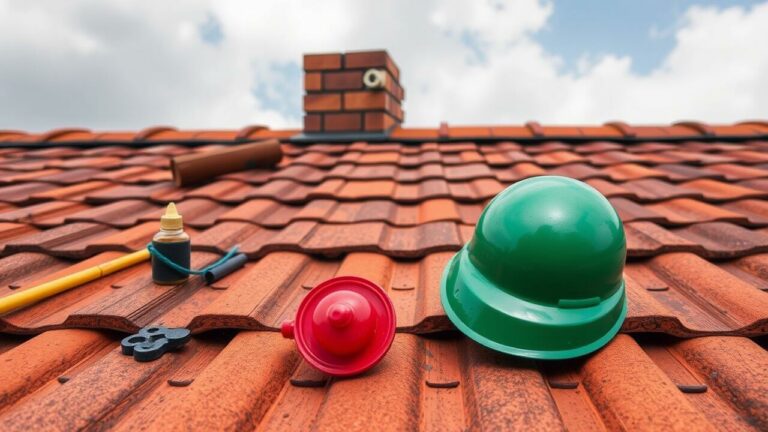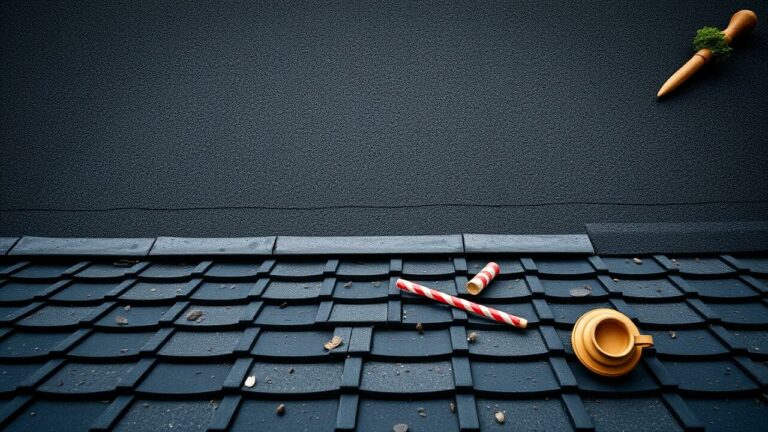Top 10 Roofing Materials You Should Know
Concrete Roof Tiles
Concrete roof tiles are a popular choice among homeowners due to their durability and longevity. These tiles are known for their low maintenance requirements and fire-resistant properties, making them a practical option for regions prone to extreme weather conditions. Additionally, concrete roof tiles come in a variety of colors and styles, allowing homeowners to choose a design that complements their home’s aesthetic.
One of the key benefits of concrete roof tiles is their ability to withstand harsh weather elements such as rain, wind, and hail. This resilience ensures that the roof remains intact and provides reliable protection for the structure underneath. Moreover, concrete roof tiles are known for their energy efficiency, as they help regulate the temperature of the home, reducing the need for excessive heating or cooling.
Low maintenance and fireresistant material
Concrete roof tiles are a popular choice for homeowners seeking a low maintenance and fire-resistant roofing material. With their durable composition, concrete tiles require minimal upkeep, making them a practical option for those looking for a hassle-free solution. Additionally, these tiles are known for their ability to withstand harsh weather conditions, providing protection for years to come.
When it comes to fire resistance, concrete roof tiles are a top contender. Due to their non-combustible nature, these tiles offer an added layer of safety to any home. This feature not only gives homeowners peace of mind but also ensures that the roof can help contain a fire, minimizing potential damage. Overall, concrete roof tiles are a reliable choice for those prioritizing low maintenance and fire resistance in their roofing material.
Synthetic Roofing
Synthetic roofing is becoming an increasingly popular choice among homeowners due to its environmentally friendly characteristics and cost-effectiveness. Made from a combination of plastic polymers and rubber materials, synthetic roofing offers durability and longevity without compromising on aesthetic appeal. This type of roofing material is designed to mimic the appearance of traditional materials such as slate, wood, or tile, providing a wide range of design options for homeowners to choose from.
In addition to its visual appeal, synthetic roofing is known for its low maintenance requirements, making it an attractive option for those looking for a hassle-free roofing solution. Unlike natural materials that require periodic maintenance and repairs, synthetic roofing is highly resistant to mold, mildew, and insects. Furthermore, its lightweight nature makes it easy to install, reducing labor costs and installation time. Overall, synthetic roofing combines the benefits of affordability, sustainability, and long-term performance, making it a top choice for modern homeowners seeking a reliable and aesthetically pleasing roofing material.
Environmentally friendly and costeffective choice
Synthetic roofing materials have gained popularity in recent years as an environmentally friendly and cost-effective choice for homeowners. These materials are typically made from recycled products, reducing the amount of waste that ends up in landfills. Additionally, the manufacturing process for synthetic roofing materials often requires less energy compared to traditional roofing materials, making them a more sustainable option for environmentally conscious individuals.
In terms of cost-effectiveness, synthetic roofing materials offer significant savings over time. While the initial investment may be slightly higher than traditional materials, the durability and longevity of synthetic roofing can result in lower maintenance and repair costs in the long run. Furthermore, the energy-efficient properties of synthetic materials can also help reduce utility bills by keeping the home cooler in the summer and warmer in the winter, leading to additional cost savings for homeowners.
Solar Panels
Solar panels are a popular choice for homeowners looking to reduce their energy costs and carbon footprint. These panels are designed to harness the power of the sun to generate electricity for the home. By installing solar panels on your roof, you can take advantage of renewable energy to help power your household appliances and lighting, ultimately saving you money on your monthly utility bills.
Not only are solar panels an energy-efficient option, but they also offer a sustainable roofing solution for environmentally conscious individuals. By utilizing solar power, you can decrease your reliance on traditional energy sources that contribute to greenhouse gas emissions. Additionally, many governments offer incentives and rebates for installing solar panels, making them a cost-effective choice in the long run.
Energyefficient and sustainable roofing solution
Solar panels are gaining popularity as an energy-efficient and sustainable roofing solution. By harnessing the power of the sun, these panels can generate electricity for your home, reducing your reliance on traditional energy sources. Solar roofing not only helps you lower your energy bills but also reduces your carbon footprint, making it an environmentally conscious choice for homeowners looking to go green.
In addition to being eco-friendly, solar panels are a long-term investment that can increase the value of your property. Many governments offer incentives and rebates for installing solar panels, making them a financially attractive option as well. With advancements in technology, solar roofing systems have become more efficient and affordable, making them a viable choice for homeowners looking to save money and help the environment.
Rubber Roofing
Rubber roofing is a popular choice for homeowners due to its lightweight properties and ease of installation. Made from synthetic rubber materials, this type of roofing is known for its durability and resilience against harsh weather conditions. Its flexibility allows it to conform to the shape of the roof, making it a practical option for various roof designs.
In addition to its practical benefits, rubber roofing is also an environmentally friendly choice. It is often made from recycled materials, making it a sustainable option for those looking to reduce their carbon footprint. Furthermore, its long lifespan and low maintenance requirements make it a cost-effective choice for homeowners looking for a durable and reliable roofing material.
Lightweight and easy to install material
One of the top choices for roofing materials that are both lightweight and easy to install is rubber roofing. This material is advantageous due to its flexibility, making it suitable for various roof shapes and sizes. Rubber roofing is typically installed in large, seamless sheets, which reduces the number of seams that could potentially lead to leaks.
Another material known for its ease of installation and lightweight properties is metal roofing. Metal roofing comes in various styles and finishes, providing homeowners with a wide range of options to choose from. Its lightweight nature makes it easier to handle during the installation process, saving both time and labor costs.
FAQS
Are concrete roof tiles a good option for my home?
Concrete roof tiles are a popular choice due to their durability, low maintenance, and fire-resistant properties. They can provide a stylish and long-lasting roofing solution for your home.
Why should I consider synthetic roofing materials?
Synthetic roofing materials are environmentally friendly and cost-effective options for your roof. They are made from recycled materials and offer excellent durability and insulation properties.
What are the benefits of installing solar panels on my roof?
Solar panels are an energy-efficient and sustainable roofing solution that can help you reduce your carbon footprint and save money on energy bills. They harness the power of the sun to generate electricity for your home.
Is rubber roofing a good choice for my property?
Rubber roofing is a lightweight and easy to install material that offers excellent durability and weather resistance. It can be a great option for flat or low-sloped roofs.
How can I decide which roofing material is the best for my home?
When choosing a roofing material, consider factors such as durability, cost, energy efficiency, and maintenance requirements. It’s also a good idea to consult with a roofing professional to determine the best option for your specific needs.







